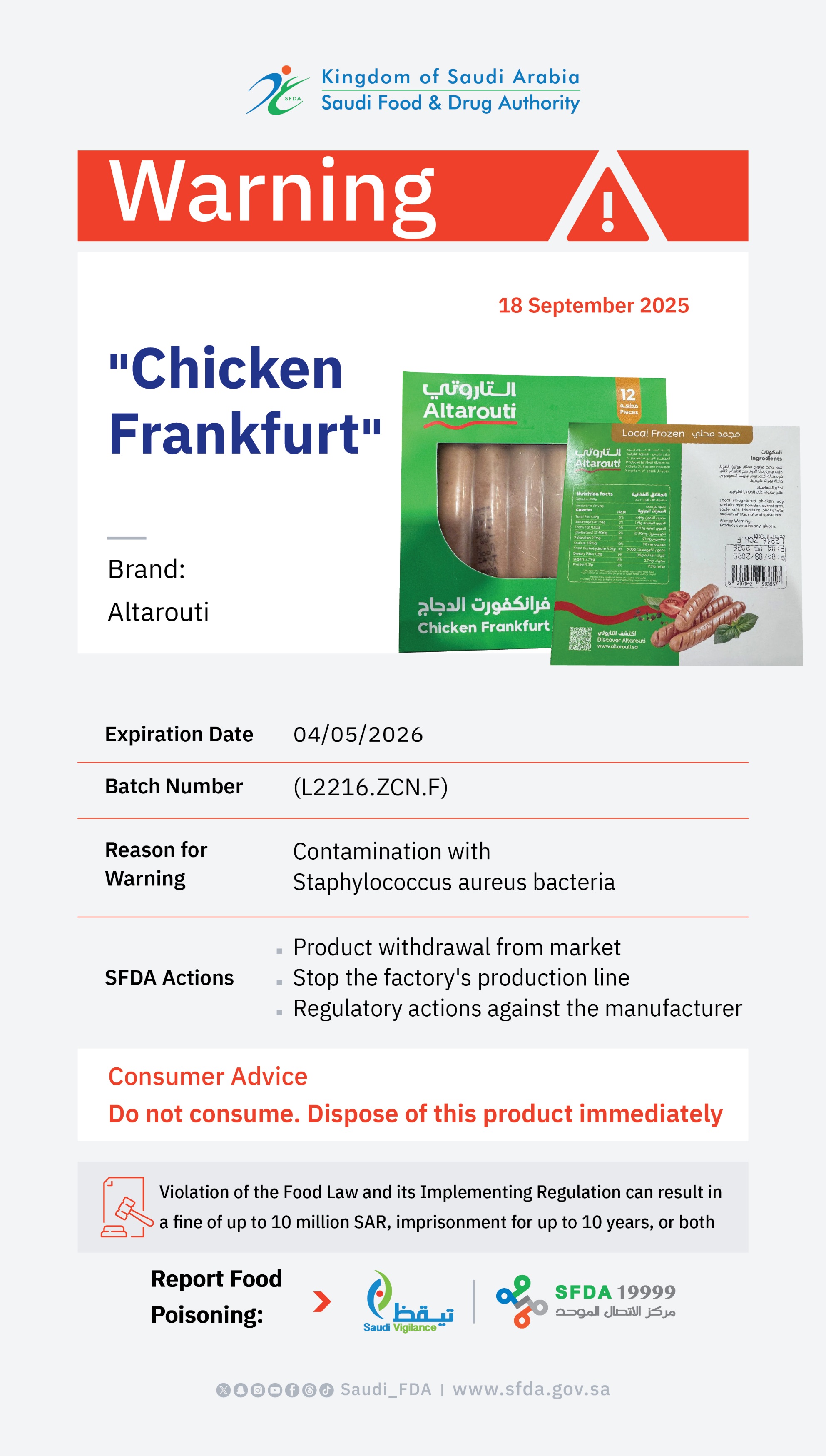
Possible Life-Threatening Adverse Effects in Babies of Nursing Mothers Prescribed the Painkiller Codeine
2007-08-20
The U.S. equivalent of the Saudi Food and Drug Authority (SFDA) announced important new information about serious, potentially life-threatening adverse drug effects in nursing infants whose mothers are taking the common painkiller and cough suppressant codeine. A list of some codeine containing products available in The Kingdom accompanies this alert.
Some people, including nursing mothers, breakdown or metabolize codeine to morphine very rapidly leading to possible toxicity in the breastfeeding infants of mothers taking codeine. These people are referred to as ultra-fast metabolizers of codeine. When codeine enters the body it is metabolized to morphine that relieves the pain. This has important implications for Saudi Arabia as 16 percent to 28 percent of the Saudi population may be ultra-fast codeine metabolizers. This compares to an estimated 1 percent to 10 percent of the Caucasian population.
A case report published in the August 19, 2006 issue of the British medical journal The Lancet describes a Canadian case of a health full-team infant whose mother was prescribed codeine for episiotomy (surgical enlargement of the birth canal) pain. The product the mother was prescribed contained codeine 30 milligrams and paracetamol 500 milligrams at an initial dose of 2 tablets every 12 hours. On day 12, the baby had a gray color to his skin and his milk intake had fallen. He was found dead on day 13. At autopsy his morphine blood levels were found to approximately 35 times higher than is typically found in breastfeeding infants whose mothers are prescribed codeine.
The signs of a morphine overdose in infants include:
· Increased sleepiness (breastfed infants usually nurse every 2 to 3 hours and should not sleep more than 4 hours at a time.
· Difficulty breastfeeding.
· Breathing difficulties.
· Limpness (abnormally relaxed) in the baby.
The signs of a morphine overdose in the nursing mother include:
· A mother may become so sleepy that she may have difficulty caring for her infant or she may become very constipated. If this occurs, the prescribing physician should be contacted as soon as possible.
Actions that the Public and Health Professionals Should Follow:
· Nursing mothers taking codeine should call their physician immediately if the signs of morphine overdose develop in the infant. If the physician cannot be reached take the infant to the nearest emergency room or call 997.
· Nursing mothers taking codeine should all their physician immediately if they develop the signs of morphine overdose.
· Nursing mothers who are prescribed codeine should discuss the risks and benefits of using codeine before starting the drug.
· Physicians prescribing codeine for nursing mothers should prescribe the lowest dose for the shortest amount of time to relieve pain or cough.
Report Adverse Drug Reactions to the Saudi FDA
The public and health professionals are encouraged to report adverse drug reactions the SFDA’s Pharmacovigilance Center on the Internet at .
|
SOME CODEINE CONTAING PRODUCTS AVAILABLE IN SAUDI ARABIA | |
|
BRAND NAME |
AMOUNT OF CODEINE IN A TYPICAL DOSEAGE UNIT |
|
Actifed Compound Linctus |
10 mg |
|
Bamycode Soluble Tablets |
10 mg |
|
Codaphed Syrup |
5 mg |
|
Fevadol Plus Tablets |
8 mg |
|
Revacod 500 mg Tablets |
10 mg |
|
Solpadeine Capsules |
8 mg |
|
Solpadeine Soluble Tablets |
8 mg |
|
Tussivan Syrup |
5 mg |





